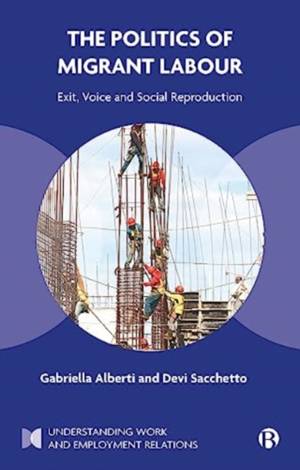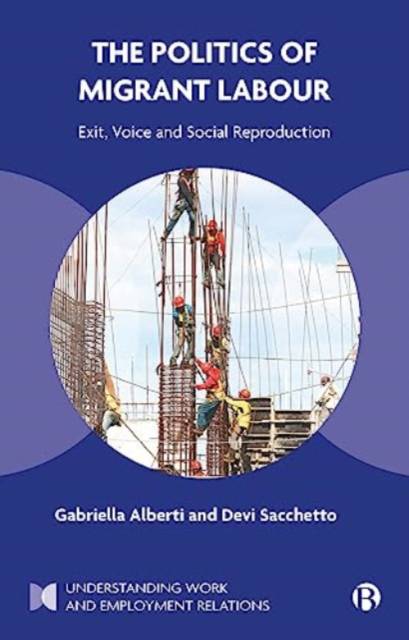
- Afhalen na 1 uur in een winkel met voorraad
- Gratis thuislevering in België vanaf € 30
- Ruim aanbod met 7 miljoen producten
- Afhalen na 1 uur in een winkel met voorraad
- Gratis thuislevering in België vanaf € 30
- Ruim aanbod met 7 miljoen producten
The Politics of Migrant Labour
Exit, Voice, and Social Reproduction
Gabriella Alberti, Devi SacchettoOmschrijving
The turnover of labour and its significance for workers and employers has usually been considered at the organizational level as individual exit behaviour, and seldom in relation to the cross-border mobility practices of migrant workers within and without the workplace.
Drawing from labour process theory, the autonomy of migration, social reproduction, and industrial relations, this book explores the relationship between labour mobility and international migration under a global and historical perspective.
Uncovering both the individual and collective actions by migrants inside and outside worker organizations, the authors develop a new understanding of migrants' everyday mobilities as creative and life-sustaining strategies of social reproduction and labour conflict.
Specificaties
Betrokkenen
- Auteur(s):
- Uitgeverij:
Inhoud
- Aantal bladzijden:
- 286
- Taal:
- Engels
- Reeks:
Eigenschappen
- Productcode (EAN):
- 9781529227734
- Verschijningsdatum:
- 20/02/2024
- Uitvoering:
- Hardcover
- Formaat:
- Ongenaaid / garenloos gebonden
- Afmetingen:
- 156 mm x 234 mm
- Gewicht:
- 576 g

Alleen bij Standaard Boekhandel
Beoordelingen
We publiceren alleen reviews die voldoen aan de voorwaarden voor reviews. Bekijk onze voorwaarden voor reviews.











